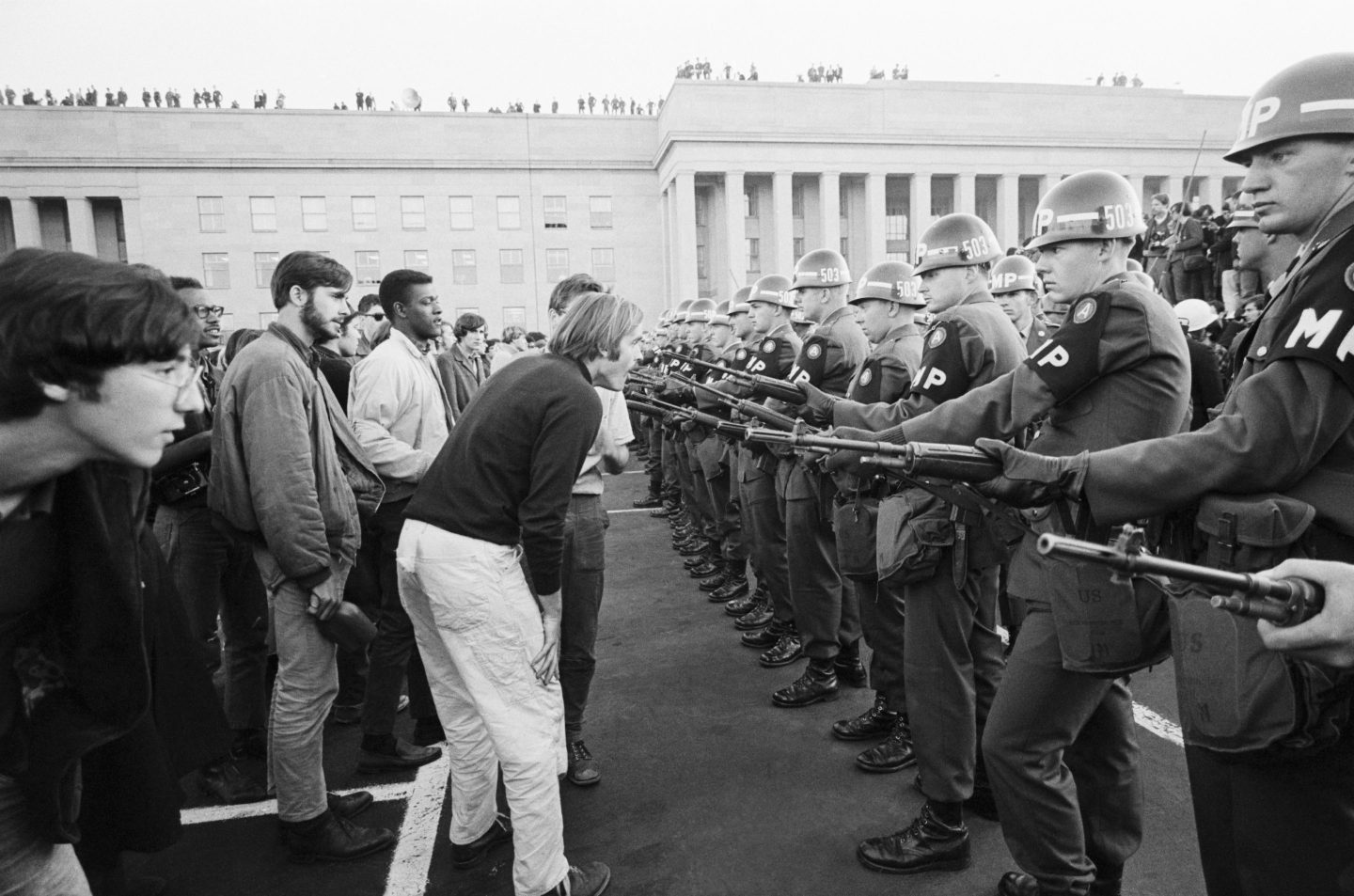This essay originally published in the Sunday, Aug. 11, 2024 edition of the Fortune Archives newsletter.
Is Joe Biden the new Lyndon Johnson? This election season—with a sitting president not running for reelection; an incumbent party bedeviled by inflation and unpopular military conflicts abroad; a challenger lamenting American decline; and an ominous threat of political violence in the zeitgeist—comparisons to 1968 are perhaps inevitable.
So it feels only fitting to revisit a Fortune essay from that tumultuous year: conservative commentator Irving Kristol’s epistle about the “shaking of the foundations” of the American republic.
The piece was published in our July 1968 issue, in the wake of the assassinations of Martin Luther King Jr. and Robert F. Kennedy and just a few weeks before clashes between Vietnam War protestors and police engulfed the Democratic National Convention in Chicago. (Johnson’s vice president, Hubert Humphrey, was nominated—only to lose to Richard Nixon in November.) Kristol’s essay barely mentions politics, but he delivers a concise if sometimes hyperbolic diagnosis of society’s discontents in an “age of anxiety.”
Kristol, who died in 2009, was one of the intellectual forefathers of American neoconservatism. A former socialist who came to believe that liberalism in all its forms—Great Society welfare programs, the free-thinking culture at universities, racy Hollywood movies—was undermining civil society, Kristol all but invented the culture wars. His thinking paved the way for the Reagan-era revival of the GOP as the party of a “moral majority.”
The author was also a famously acerbic putdown artist, but this Fortune essay is zinger-free: Kristol writes in sober, almost elegiac tones about “the habits of mind that threaten the civic-bourgeois culture bequeathed to us by Western civilization.”
He breaks down his diagnosis into five categories, and you don’t have to share his political leanings to find yourself nodding in recognition. Anxiety about rapid technological progress? Same, Irving, same. A generational divide? Thanks to student debt and those aforementioned culture wars, it’s only getting wider. Unease about popular culture? Yeah, I don’t get Post Malone either.
Still, many elements of Kristol’s essay seem quaint today. He depicts an America in which identity groups bicker over the spoils of prosperity in a “revolution of rising expectations”; he doesn’t anticipate an era in which widening disparities would make prosperity itself seem unattainable to many. And perhaps no one in 1968 could have foreseen the extent to which technology and media would fragment and polarize American society.
Kristol doesn’t offer any cures along with his diagnosis. But his essay offers an oddly reassuring reminder that America has survived previous episodes of cultural insanity. As he points out at the outset, “Every generation is convinced that its world is out of control.”
This is the web version of the Fortune Archives newsletter, which unearths the Fortune stories that have had a lasting impact on business and culture between 1930 and today. Subscribe to receive it for free in your inbox every Sunday morning.













